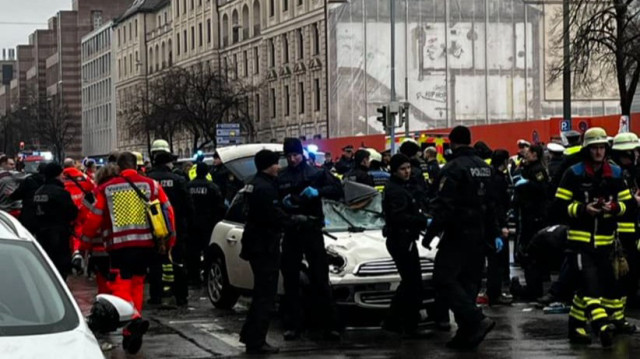Trump and Putin's Talks Signal New Phase in Ukraine Conflict
A series of diplomatic discussions involving Trump, Putin, and Zelenskyy might reshape ongoing conflict resolutions in Ukraine. Insights from recent formal conversations offer thought-provoking angles.
Published February 14, 2025 - 00:02am

Image recovered from deccanchronicle.com
The burgeoning geopolitical dialogue between key world leaders holds potential consequences for Ukraine's future and the intricate relations between the United States, Russia, and Ukraine. Former U.S. President Donald Trump has instigated discussions with Russian President Vladimir Putin and Ukrainian President Volodymyr Zelenskyy about the possibility of extensive peace negotiations to conclude the protracted war in Ukraine. This diplomatic engagement illustrates a strategic pivot towards negotiation, emphasizing Trump's aspiration to end a conflict that has significantly impacted international relations since Russia's annexation of Crimea in 2014.
In a notable advancement, the recent conversation between Trump and Putin extended an hour and a half, underscoring the gravity of the proposed talks. Focus centered on dispatching teams from each nation to catalyze a ceasefire dialogue. This bilateral communication underscores a critical intervention by the United States in attempting to mediate a resolution that bypasses traditional channels through Kyiv, aiming directly at Moscow.
With dialogues set against a backdrop of multinational interests, other nations' perspectives are equally critical. The Pentagon's current stance, articulated by U.S. Defense Secretary Pete Hegseth, frames the return of Ukraine to its pre-2014 borders and its incorporation into NATO as unrealistic objectives under current conditions. This reflects a nuanced recognition that while Ukraine's sovereignty is paramount, pragmatic limitations necessitate strategic reallocation of resources and defense priorities by allied nations, particularly within European boundaries.
European allies, historically dependent on U.S. military support, are being urged to shoulder more substantial responsibility for regional defense. This shift marks a compelling evolution in NATO's operational dynamics, positing that greater continental security infrastructure is vital. Trump's commentaries and policy directions indicated an intricate balancing act between reinforcing existing alliances and promoting regional self-reliance, thus averting over-dependence on U.S. military might.
Parallel to these developments, Trump's schedule with Putin could also signify an impending personal summit, speculated to be held in a neutral territory like Saudi Arabia. This prospect garners interest as an emblem of potential détente, particularly with Saudi Arabia's historical engagement in diplomatic negotiations highlighting its growing diplomatic clout. Trump's connection with Saudi Arabia's leadership further cements such prospects, aligning with ongoing Middle Eastern geopolitical narratives.
The multi-layered discourse extends to the Kremlin's involvement in brokering peace, suggestive of Russia's readiness to engage in dialogues officially heralded by its strategic interests. The Kremlin's acknowledgment of Trump's invitation to Moscow signals a potential thawing period in U.S.-Russia relations, amidst broader diplomatic exchanges focusing on key economic and security issues, including energy dependencies and innovative technologies.
While the proposition of forthcoming peace talks invites cautious optimism, it's pertinent to note European countries' reaction, undermining preemptive concession discussions regarding NATO membership and territorial integrity, which could be perceived as undermining Ukrainian agency. The reciprocal engagement by both the U.S. and Russia predicates a critical juncture for future peace initiatives, aligning international policy with renewed tactical pragmatism.
In summation, the unfolding narrative surrounding Trump's engagements with Putin and Zelenskyy is emblematic of an evolving geopolitical theatre, where diplomacy and dialogue are leveraged as vehicles for potential resolution in the Ukrainian conflict. As these dynamics progress, historic allegiances will be tested and redefined, crafting a new tapestry of geopolitical risk and opportunity, undeniably reshaping strategic doctrines on a global stage.






